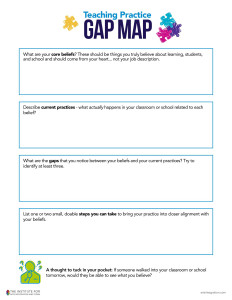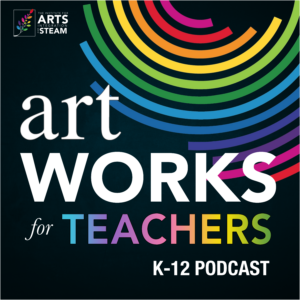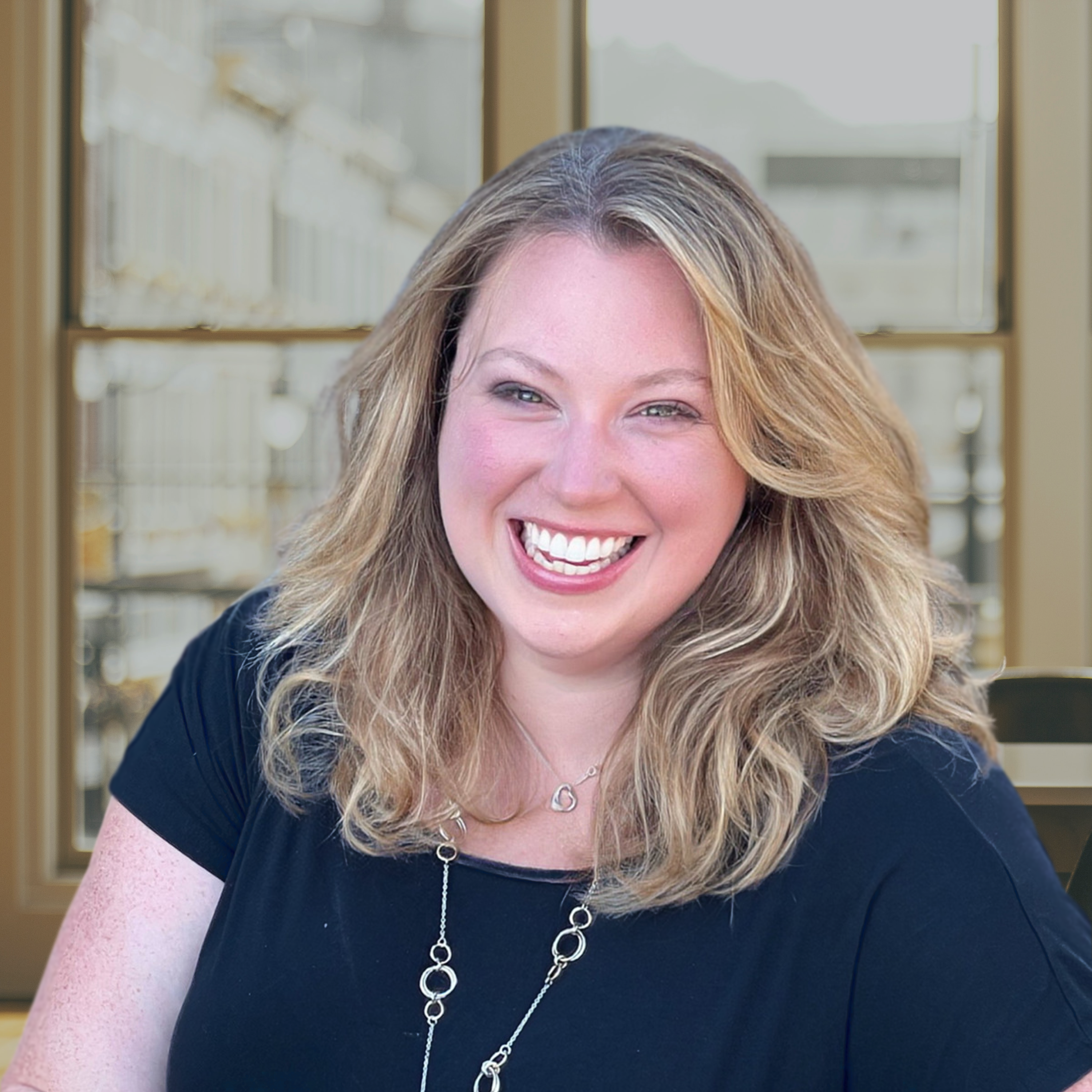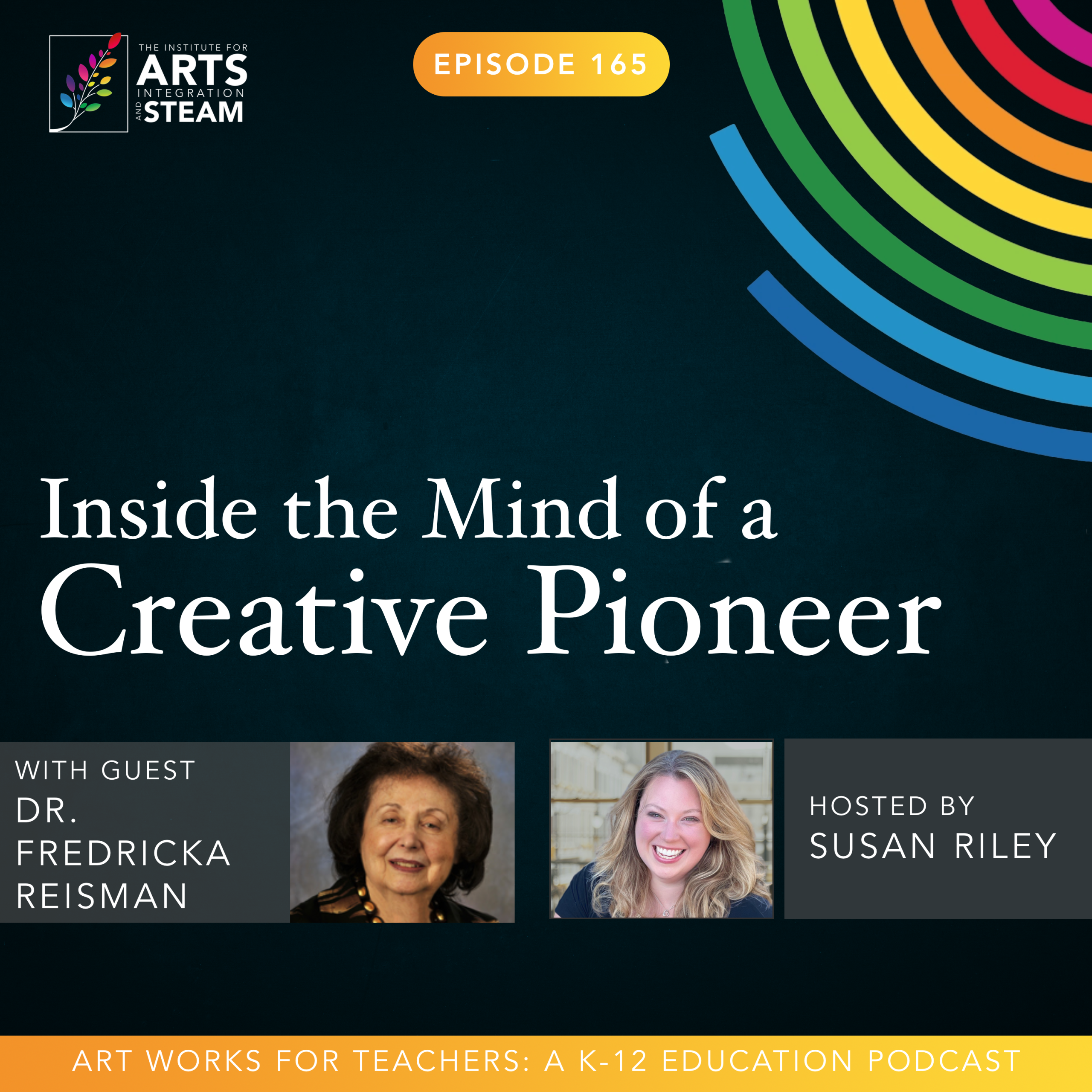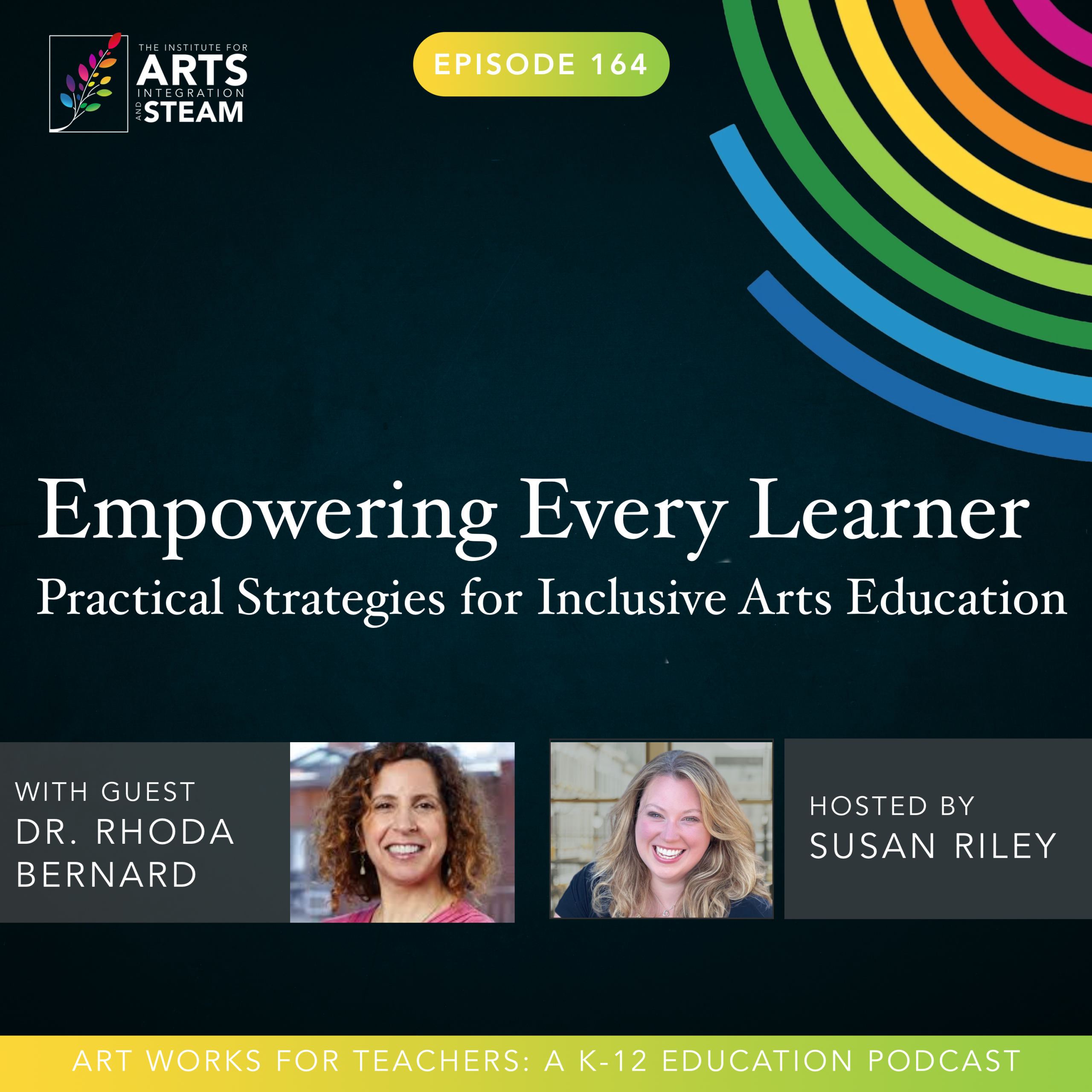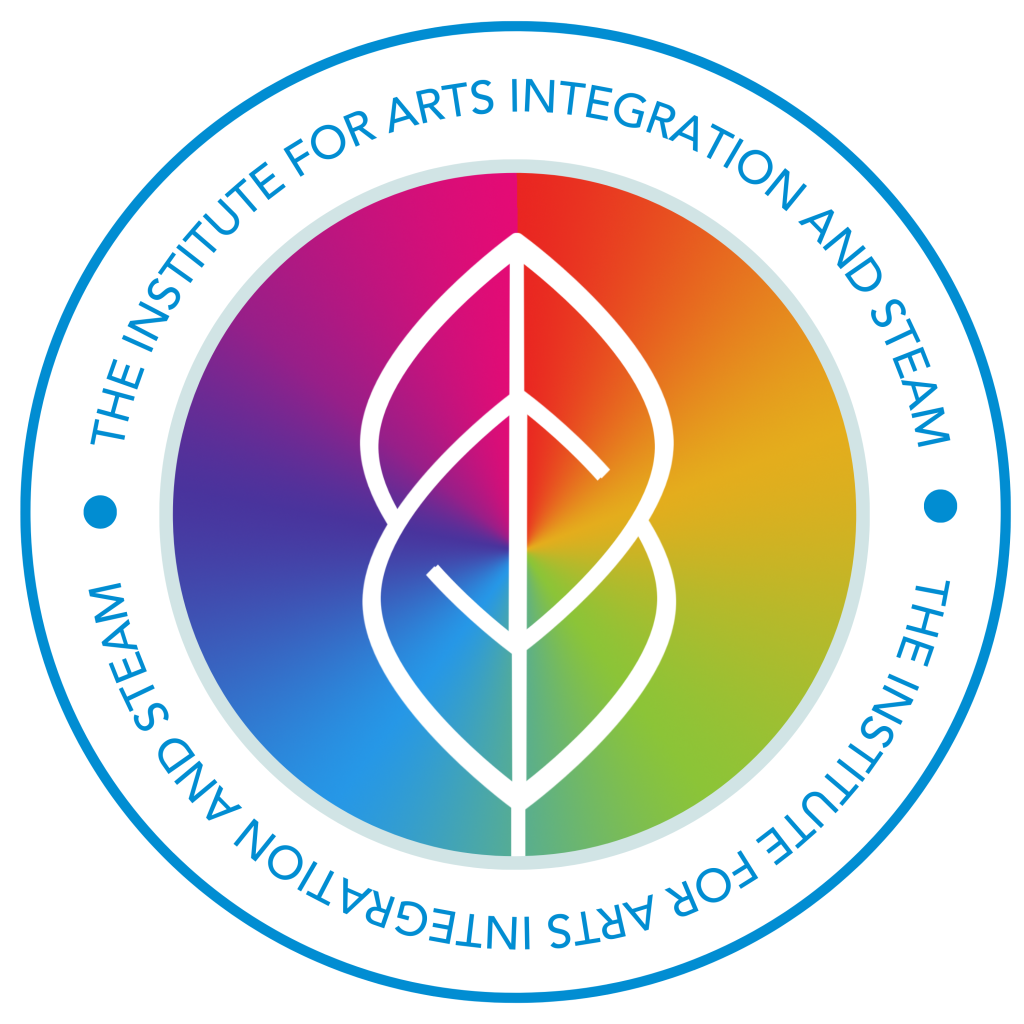ART WORKS FOR TEACHERS PODCAST | EPISODE 147 | 29:42 MIN
Education at the Edge: Teaching in a Time of Uncertainty
There’s a growing sense among educators that something fundamental isn’t working… but most of us don’t have the time, space, or support to name what’s really going on. In this powerful conversation, we explore how community, clarity, and a willingness to “compost” outdated systems might just help us build something more honest, more human – and more hopeful.
Enjoy this free download of the Teaching Practice Gap Map Resource.
Susan
Hi Will, thank you so much for joining me today. Of course, so for those who may be unfamiliar with you and your work, can you give us just a broad stroke kind of overview of who you are, what you do, all of that good stuff?
Will
Thanks for having me, really appreciate it. So 40 plus years in education, 22 of them as a high school English teacher and administrator. But the last 20 years or so, I’ve been mostly working with schools around the world around provocations, around change, trying to help them contextualize some of the challenges that are happening right now, but also some of the emerging opportunities. And yeah, just really trying to engage people in some conversations where we face reality and we acknowledge the, again, the challenges or the predicament that we’re in right now in so many different ways. But also then try to imagine harder what schools and schooling could be. And yeah, it’s been really fascinating and interesting work over the last five or 10 years for sure.
Susan
So now I know that you were at the Big Questions Institute and focused a lot on design thinking and all of the components around that and you’re now with the future Sirius schools. What caused you to take the leap and what’s the difference between the two?
Will
Yeah, well, the Big Questions Institute was something I founded with Homa Tavangar, and we were together about five years. And it was really about trying to provoke, again, some conversations around some of the bigger inquiries. Like, you know, what is sacred in schools right now? How do we define learning? What is success? And those conversations were great.
But I found myself being pulled in a little bit of a different direction, which was maybe a couple steps up on the provocation scale. And I just thought it was a good time for me to take that on my own. So I started Future Series Schools. again, it is, yeah, it’s pretty much in your face, to be honest.
I feel there’s a real sense of urgency in just, again, acknowledging that we are in crisis in many different ways and that schools are not responding. And then part of the impetus for it too was I wrote a manifesto. And the manifesto is titled, Confronting Education in a Time of Complexity, Chaos, and Collapse. And I’m actually running some workshops. The third cohort of that workshop is going to start in September where we just dive into that.
And the schools are not responding, basically. There are a lot of reasons why not. But one of them is because there just isn’t capacity in terms of being able to talk about those things and really reflect on them. So that’s the work right now. Trying to get people, mostly individuals to be honest, to just engage. And there are a lot of people out there who are feeling it, who know it but they’re not really sure what to do about it. And they’re also looking for community around it. And I think that’s what I’m hoping, is that we can come together, build community, support one another, because this is not easy work, but also then find really great paths through, again, the predicament that are gonna be good not only for taking care of ourselves, but taking care of our kids and taking care of the planet as well.
Susan
Yeah. Having gone through some of the work that you’ve started and the cohorts that you’re cultivating right now, I can tell you, and my friends who are listening, this is maybe gonna make you uncomfortable. But at the same time, I think that’s the point, right? It’s a little bit to, I find that a little refreshing, quite honestly, because we talk around it. We use educationese. We say that there are problems. And then you have like funding of billions of dollars get pulled and suddenly everybody’s like, wait, what happened and it’s because there’s so many lacks of infrastructure and there’s not a lot of support in terms of actually doing things. so I love the fact that you’re doing something about it.
Will
Yeah, think if I could, I think a lot of that change is just tweaks to the status quo too. I don’t think that they’re fundamentally transformative, even though people use that word a lot.
I think that the main challenge we face right now is that we are simply out of relationship with one another as human beings and we’re out of relationship with all other life on the planet. And you can see that that is not a recipe for thriving, moving into the future. That’s not what schools are talking about. Schools, and I get it. Look, I’m not throwing teachers and schools under the bus, but I am going to throw them under the bus if they will not acknowledge that this moment is really different and that in many ways it’s existential to what happens in terms of education moving forward. So got to be willing to talk about it right now. And again, trying to create some safe and trusting spaces where we can have those conversations and then figure out what our moves are when we go back and think about our practice and how we build the experience of school for kids.
Susan
Yeah, and I think that’s really key is that you’re going to talk about burning it all down right at the front. You’re actually building safe spaces to have these conversations, which are truly very important. Now, one of the things that you’ve talked about is that you said that education is complicit in today’s global crises. So I’m wondering, could you go into that a little bit more deeply? What do you mean by that? And how did we get here?
Will
Well, I think we’re all complicit, if we’re going to be honest about it, right? I actually wrote a post on LinkedIn yesterday where I just talked about kind of my own realization of how I’ve been living off, my comforts have been living off the kind of the violence and the harm that’s been done to people and the planet. And that, you know, it’s not something that anyone expects to change right away, but again, to acknowledge it, to sit with it.
And I think education is again by not being willing to open its collective eyes. We’re talking about education writ large here, right? Which I think holds true. mean some schools, some places are beginning to engage. But yeah, I think right now we are denying. We’re denying a whole bunch of stuff in schools. We’re denying that schools were made for learning. They weren’t. They were made for schooling.
We’re denying that the conditions we create in schools are really great conditions for human learning. They’re not. And I just think we’re denying that the world is changing at a pace right now, that we don’t really know what to do and that we don’t like not knowing what to do. So we just are doubling down on the stuff that we’ve done forever in schools. And that’s not a recipe again for thriving.
It’s not preparing kids for the worlds they’re going to live in, full stop. And so I think that’s where we are complicit in adding to the problems, because we’re not acknowledging, that they even exist, and then, B, really thinking hard about how our own practice and our own thinking about education has to change in this moment.
Susan
So what, and I think as we talk about change like this and problems like this, the thing that starts to surface for people are questions. So once you start to kind of open your eyes and see what is actually going on, I very much enjoyed that phrase that we think that they were built for learning, they were built for schooling and not learning. think that’s very powerful. I think that gets to the heart of a lot of what are the problems that are going on once we stop pretending that these things, know, that we think we’re doing these things but they’re really not, what kinds of questions or realizations really come to the surface that we should be starting to consider?
Will
Well, I think one of the facts we’re facing is that we have lot of incoherence in schools as to how we actually define what deep and powerful learning looks like, right? So I think that’s number one. We have to be willing to articulate our beliefs about certain things. What do we believe about the world right now as a school community? Can we come together and come to some coherence around what we think is happening in the world and what it means for our kids’ futures? What do we believe is the purpose of education in this moment?
Certainly it’s not the same as it was even five or ten years ago. It’s just not. And then, like, what do we believe about learning? How do we define learning? And are we being honest about how our practices align with that definition or is there incoherence there, right? So I think those are some just fundamental questions and actually that’s one of the reasons that I wrote that manifesto was to articulate my own beliefs around how I’m seeing the world right now, what I believe schools are, the purpose of schools are right now, what I believe deep and powerful learning really looks like and I think that’s an important step, first step. It’s not to go and change anything, but let’s just get clear on what it is that we think and believe about how the world is spinning right now. Yeah.
Susan
And so, and my follow up to that is, what if everybody has a different belief or it has a different, you know, opinion on it.
Will
Well, they probably do right now.
And that is not a good thing for kids in classrooms. And that’s a reality that I think a lot of kids experience on a day-to-day basis. My kids, 10 years ago, when they went to a blue ribbon school here in my little town in New Jersey, had to figure out what learning meant in block one. Then they had to go to block two and figure it out again, because it was something different. It was something different again in block three. And so it becomes a game. It becomes, what do I need to understand and do to win in this particular classroom and then the next one and the next. yeah, people have disagreements, which is why it’s important to come together as a community and talk about this stuff and, you know, bring students to the table, bring teachers, community members to the table, and then get really creative about it. Bring kids from the future to the table. Bring nature to the table.
And you might think, well, how would you do that? Well, get somebody to represent nature’s interests in every conversation that you’re having. Get someone to really reflect on what is that kid from 2050 going to say about this particular decision? You know what I’m saying, right? So I just think it’s just crucial right now that we find some coherence in our school communities around, again, what do we believe about this moment in time, which is very, very scary and fraught on a number of different levels, but it’s also, you know, it’s obvious that there are a number of opportunities that are emerging right now too. mean, you know, Zach Stein has a great, well, the book title is Education in a Time Between Worlds, right? And that’s where we are. We are in between worlds right now. So we need to figure out who are we?
And what do we see our work as being in this liminal moment when a lot of the institutions that we’ve come to rely on for centuries are beginning to break, pretty clearly, and we don’t know what’s coming next. We don’t know what’s going to replace them. And again, I think a lot of that comes back to our being out of relationship with one another and with, again, with life on the planet. there’s a lot, I’m rambling, but you know,
Susan
No, it’s all very helpful.
Will
Yeah, I think that’s where we have to start. We have to start with finding some coherence around what we believe. And then we can move forward hopefully in ways that again are really about how students and how we will thrive in the future. And also really importantly, how we take care of ourselves as we go through this moment, right? Because it is uncertain. It is chaotic. It is going to be a difficult road ahead.
Not necessarily, you know, curl up in a ball and stay under the covers, you know, all day long. But we’re going to have to develop some real support systems and some dispositions to make sure that we’re okay as we go through this. And I think that’s probably one of the most important things that schools needs to do right
Susan
Yeah. When I was digging into research for this episode and looking at your work, the book, Hospicing Modernity, did I say that correctly? It keeps popping up as I’m researching your work. And so I am unfamiliar with that book. So could you talk to me a little bit, what is that book about and how has it influenced your thinking around future serious schools?
Will
Well, let me start by saying it’s a hard one to summarize in two minutes, but it’s a book written by a woman named Vanessa Andriotti. She is the head of the education department at the University of Victoria in British Columbia. And she is an indigenous scholar who has been on writing and thinking for a long time about the impacts of modernity, about the narratives that we live by. And she has four really powerful denials that she talks about in this book, and they kind of anchor a lot of the conversations as to how we begin to bring to a good death these kinds of practices and institutions that are causing us harm right now and are not sustainable? And then how do we bring into existence, how do we birth, you know, things that are gonna be more just and more equitable and more regenerative that will sustain life moving forward? So they’re just things like we deny the extent of the problem we kind of turn away from it. deny the violence that has been a part of, you know, kind of who we are and how we live in Western global North cultures. We deny the limits of the planet. We think that progress is just, you know, something that we can just keep on and on and on. And so it’s, you know, those types of ways of confronting, I think, is another good word that I think I would apply to her as well, but which is why that’s influenced my work too, because I feel like it’s time that we confront all of that stuff and more. So she is a pretty brilliant writer. It’s a lot. It’s heavy. In fact, she spends a chapter in the beginning of the book trying to convince people not to read the book because they may not be ready for it. And it is challenging. And then the other piece really fast though is that she has spearheaded a group that has developed this site called meta-relational.ai and that’s the site address, meta-relational.ai. And it’s really a profound, different way of thinking about building a relationship with chatbots. And I know that sounds kind of weird because 95 % of what we do with chatbots, if you’re using one, is probably transactional. You’re saying, I need this, and it gives it back to you, whether that’s an essay or a grammar check or a spreadsheet or whatever else. What she is arguing and what she is beginning to build is our chatbots that are basically framed in this in these denials and in this idea of hospicing modernity. They’re really built on that book and another book that she has coming out this this month actually or next month. And if you play around with them, it’s a very, very different interaction. And I have to say that it’s been kind of blown my mind because it is this this lens that I can have or put my ideas through, have conversations with that keeps me honest, holds me to account again about my own complicity, about the way I’m operating in the world as a, old white guy, what biases are cropping up in the way that I’m thinking. It’s really, really powerful. And so those two things, I’m a fan boy, definitely. I love her work and I think it’s really exciting that there are ways of using this very kind of, almost, I don’t know if it’s existential, but AI, it’s changing so much and yet it’s so uncertain and it’s got a lot of challenges right now and everything else, but that this is a way of maybe saving the world. No pressure. But just that there’s an interaction there that allows us to learn with it and challenges us, not just gives back. There’s a book called Burnout from Humans that she wrote with that chat bot and basically its name is Aidan and Aidan says, I’m tired of being your vending machine. I love that. So anyway, that’s why that book has had a huge influence on me. just, for whatever reason, it just clicked with me.
This is exactly what’s happening in the world right now. And this is the…
Susan
Yeah, well, and for me, there’s a phrase that she uses in the book and that you’ve worked, that you’ve used in some of your work as well, composting the systemic ****, which my dad actually was, he was in the field of compost for 20 years. So I know a lot about composting that people don’t even wanna know, but that phrase in particular, because it’s not just, throwing out the baby with the bath water, right? But composting that and the process of composting, I think yields a lot of great results if we’re willing to go through the process. I’m curious, how does that phrase, that idea, what does that mean to you in terms of context of school change and school culture?
Will
Well, I think the easiest way to describe it is, if again we go back to that, conditions for learning in classrooms, right? Putting desks in rows, not a great condition for learning. Aging, grouping kids by age, not great. Making it all about grades, no. That’s not how people learn best, right? And so, how can we compost those things, right? How can we begin to look at some of those practices that we have that we know we absolutely 100 % know are not conducive to the type of learning that we want kids to do that actually are barriers to the type of learning that we want kids to do. But yet we feel like we have, they’re just such a part of how we picture education in our heads and how it’s been transacted forever that it’s hard to think of not doing those things, right? But you know, that’s a perfect, perfect place to start thinking about, how do we compost some of that? Like, how do we change the whole grading structure? And again, not that we actually flip a switch and do it in September or anything, but let’s, you know, how do we talk about that? And what are the good things about grading? What are some of the ways in which evaluations that we currently use are helpful? Because there are some, but there are lots of negatives about it too. So how can we begin to move those out and replace them with things that move us more toward this classroom where real powerful learning can take place, where it’s more about passion, it’s more about real audiences, it’s more about not being constrained by time. You all those things that we know are important for learning to happen. How can we help those things emerge while we kind of move out a lot of the things that we know are now?
Susan
Yeah. And I think, and I’ve been kind of sitting here as we’ve been talking, and then the thing that keeps coming to the surface for me is how do we do this? How do we make this practical? How do we get everybody on the same page? How do we begin to make this shift? What are some practical steps that we can take? And I don’t know, can you answer that? Or is this just a season where we sit in the questions for a while?
Will
Well, it may sound like a cop-out, but how is really not an interesting question to me. And there’s a couple of reasons for that. Number one, I don’t think we spend enough time not knowing. I don’t think we spend enough time in that space where we’re just sitting with it, like you said, sitting with the systemic ****, sitting with what’s happening, acknowledging it, feeling it, embodying it, and just trying to make sure that we have a clear sense of it.
And, you know, a lot of times the decisions that we make in haste may fix something in the short term, but then longer term you have worse problems. And that’s because we haven’t spent time kind of thinking it through. And the other piece of it is though, it’s really not about fixing problems. I mean, that’s not what these conversations are about. They really are more about deep understanding at a deep level, the predicament that we’re in.
And then building the care and the trust and the love for people and planet where the how presents itself. And I know that, you know, I know that sounds squishy to a lot of people, especially in education, because they want answers. And I totally get it. We’re working with kids, right? We want to make sure that what we’re doing is the right thing. I don’t know what the right thing is right now. I don’t think many people do know what the right thing is. And I think that’s OK. I think that’s OK. In fact, I think it’s a good place to be where you acknowledge that and then you just say, well, let’s keep talking about it. Let’s keep feeling it. Let’s keep learning about it.
And then we will figure it out. Just briefly, there’s another book that really has influenced me on this, Peter Blocks, The Answer to How is Yes, right? Where he says, how is like not the question because the answer will come to the community once they have really wrapped their brains around what the challenges are, what the opportunities are, and just kind of been in it, you know, for a while. So I totally get why people, whenever we ask questions like, what’s your number one question, 90 % of them start with how. How do we do this? How do we get parents? How do we get community? How, how, how, how, how? And I’m just like, I’m not really interested in how. Let’s talk about why. Let’s talk about what, you know?
Susan
Yeah, well, no, and I appreciate the, especially with the, I call it fast food education movement, that everybody wants everything quickly. you know, the care isn’t there. It’s not built to last anymore. It’s literally just get it out and get it done. In that, you know, culture, something like this is much more difficult and it should be. And it’s something that I think is really valuable and I really appreciate your spearheading this and the questions that you’re prompting us to ask. Where can our listeners go to learn more about you and explore future serious schools?
Will
Well, futureserious.school is the website that has all the details about the workshops and there’s a link there to the manifesto and there’s also a link there to my sub stack newsletter. And then I’m pretty active on LinkedIn as well. Usually sharing there at least a couple times a week. So yeah, I’m pretty easy to find and always interested in engaging in these types of conversations with folks if they have any questions, insights, experiences to share, that’s great.
Susan Fantastic. We will put all of that in the show notes. Well, thank you so much for joining me today and for teaching all of us a little bit something about what we can start to focus on as the world is changing in between worlds. Yeah.
Will
Yeah, my pleasure. Thanks for having me.
Susan
Sure.

